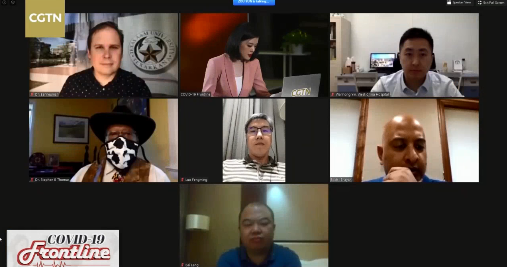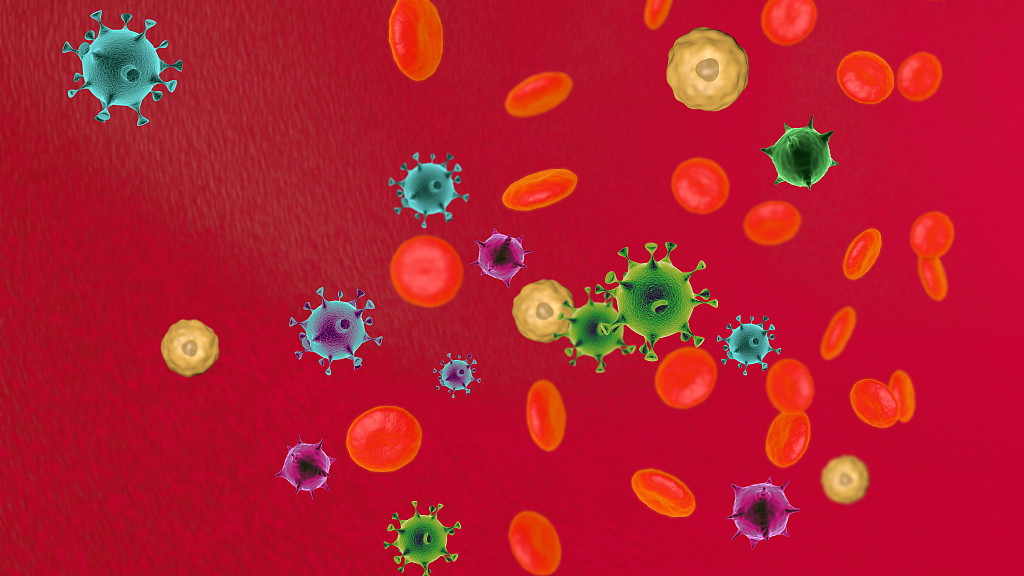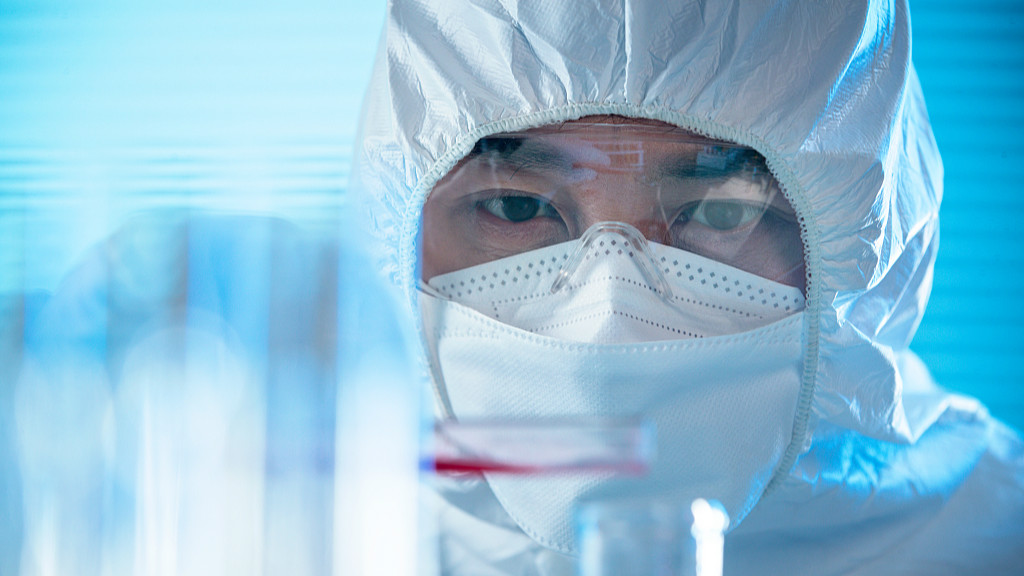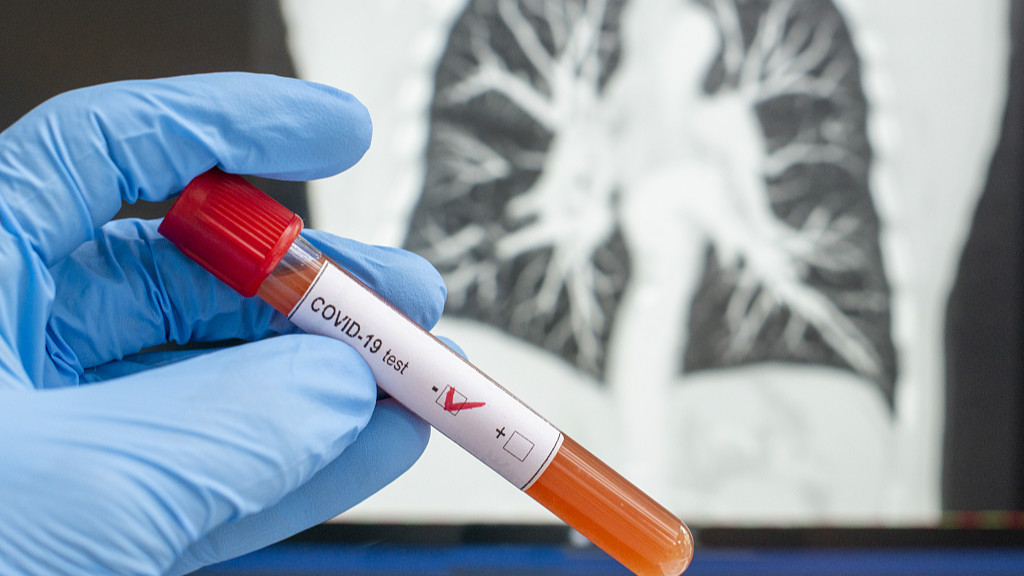Editor's note: On March 12, 2020, the World Health Organization (WHO) declared COVID-19 a pandemic, and as of Saturday (May 16), about 200 countries and regions have confirmed over 4,347,900 cases, according to the WHO. On CGTN's live program "COVID-19 Frontline," we invited medical workers and experts from China's epicenter Wuhan and from all over the world to share their experiences and take questions from social media, in the hope of providing more information for those who are battling against the pandemic.

As the coronavirus pandemic continues to wreak havoc around the globe, as of May 16, more than 1.4 million people in the United States have been infected with the novel coronavirus and at least 87,000 people have died, according to Johns Hopkins University's latest tally.
In the latest episode of CGTN's livestream program "COVID-19 Frontline" held on Friday, May 15, medics from West China Hospital of Sichuan University shared COVID-19 treatment experience and knowledge with U.S. counterparts.
Live: Chinese medics share COVID-19 treatment experience with U.S. counterparts

Chinese medics share COVID-19 treatment experience with U.S. counterparts. /CGTN
Chinese medics share COVID-19 treatment experience with U.S. counterparts. /CGTN
Who is most susceptible to the novel coronavirus?
Dr Stephen B. Thomas, professor of UMD's School of Public Health, said one of things they are seeing in the United States is that people with underlying diseases such as diabetes are more likely to die from COVID-19.
Bai Lang, deputy director, Infectious Diseases Center of West China Hospital of Sichuan University, agreed with Dr Thomas, saying they also found a similar correlation between underlying conditions and COVID-19 death rate. They also found that elderly people are at highest risk of severe disease following infection from COVID-19, due to their decreased immune function and multimorbidity with aging.
Dr Thomas also said the data shows men are more likely to die of COVID-19 than women. There are also other demographic differences in the United States – minority groups including African Americans, Hispanics and Asians also suffer greater mortality.
Dr Bai Lang said expression of ACE2, the receptor for the novel coronavirus, is not same in different populations, which may be one of the reasons why people have different responses to the virus.

CGTN's live stream program "COVID-19 Frontline." /CGTN
CGTN's live stream program "COVID-19 Frontline." /CGTN
Treatment of thrombosis
Nikhil Bhayani, infectious disease specialist, Bedford, TX, asked about the treatment of thrombosis associated with COVID-19.
Yin Wanhong, associate professor from West China Hospital of Sichuan University, said a lot of COVID-19 patients have increased levels of d-dimer levels. For patients in severe conditions, the application of low molecular weight heparin is recommended while prophylactic anticoagulation is used on patients with mild symptoms.
07:18

Convalescent plasma therapy
Nikhil Bhayani said in the past weeks they have used convalescent plasma therapy on four or five of their patients. All of them have done impressively well. They used convalescent plasma therapy after the IL-6 inhibitor therapy failed, and the recovery of these patients was quite remarkable.
Dr Yin Wanhong said according to his experience, the usage of plasma therapy is also related to the antibody level in the plasma and the choice of patients who receive the therapy. Plus, the health condition of the patient should also be taken into consideration.
07:00

Early detection of asymptomatic patients
Stephen B. Thomas said early detection of patients is very important, detecting asymptomatic patients remains challenging. He wanted to know about detection methods in China.
Luo Fengming, deputy director of Department of Respiratory and Critical Care Medicine, West China Hospital of Sichuan, answered that the first is to track close contacts of the patients and screen out undetected cases. The second is to test people who return to work. In addition, Wuhan also plans to test all of its residents.
"Community doctors, government staff, volunteers and many medical workers from other parts of China have been organized to support the widespread test in Wuhan," Dr Luo added.
05:28

In later episodes of "COVID-19 Frontline," more frontline doctors and experts from Wuhan will join in to share their experience with their colleagues from other parts of the world. If you have any questions regarding COVID-19, you can share with us using #MyOpinionOnCOVID19 on Facebook.
Videos by Zhang Rongyi
Cover image by Du Chenxin